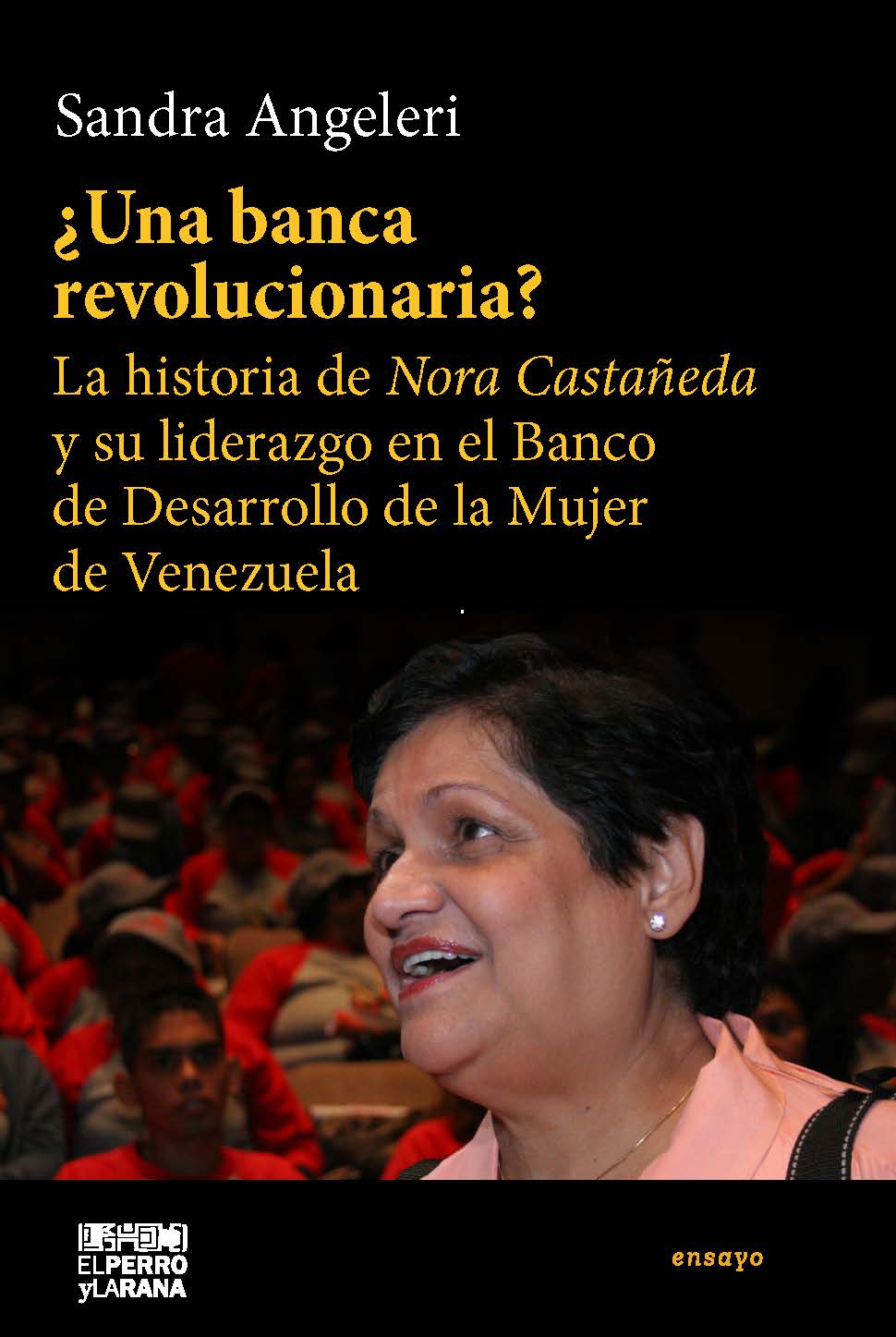
¿Una banca revolucionaria?
- Sandra Angeleri, “¿Una banca revolucionaria? La historia de Nora Castañeda y su liderazgo en el Banco de la Mujer de Venezuela” El Perro y la Rana, Caracas, 2025, ISBN 978-980-14-5771-8
A Revolutionary Banker? The History of Nora Castañeda and her leadership in Venezuela's Women's Bank
Prologue
(VIew complete Spanish version PDF)
This book is written from the perspective of someone who knew Nora Castañhttps://docs.google.com/document/d/13yJanhmNlEfIShqLpNVnasHLkT0P--zILHwVGAdrs5c/edit?usp=sharingeda for decades and also invested a significant amount of her life interviewing others who also knew her at different stages of her life, distilling those interviews to assess what she felt contributed most to a kaleidoscope of that friend, professor, and colleague.
The author of this book, Sandra Angeleri, was someone special to Nora Castañeda. I met them both in the second half of the 1980s within the academic circles of the UCV, where we shared ideas and dreams. I also know that for Sandra, writing this book, compiling and systematizing everything that many of us had to say about Nora over the decades, was an emotionally and intellectually demanding task. It was a task that gave us an order and a framework through which to understand a figure who, ten years after her physical disappearance and the sowing of her life in our memories and hearts, her spirit, her legacy, and her actions remain in the affections and minds of thousands of Venezuelans.
There are many elements I could highlight about the life, work, character, and teachings inside and outside the classroom of the beloved professor and economist Nora Castañeda: her remarkable humility, her vocation for service, her unwavering revolutionary conviction, the gentleness with which she expressed her firm beliefs, her passionate dedication to serving the poorest, among many other things. However, I have chosen to highlight two, just two that—especially in the times we are going through—seem appropriate and significant as life practices in our times: honesty and consistency between her words and actions. Since the days of the Coordinator of Women's Non-Governmental Organizations (CONG-M), which existed from 1984 to 1992 and included women of the most diverse political tendencies and positions, Nora, in an affirmation of her belief in the value of supporting grassroots initiatives and unity in diversity, along with another professor, rented a space out of her own pocket so we could all meet and discuss upcoming actions to be developed within the framework of CONG-M. These coordination actions benefited workers fired for being pregnant or women victims of gender-based violence, or any other similar violence.
Over the years, renouncing any hint of vanity, she used part of her university professor's salary to support women in pain, people in situations of helplessness and need, and causes that benefited the poor, peasants, or the disadvantaged. That same behavior is reflected much later in this book, when we recall that she didn't receive her salary as president of the Women's Development Bank and what she did with it, which, with her always modest behavior, only a few people knew about, and which she never boasted about. She was a person of exceptional behavior who made all of us around her believe that it was simple and that we could do the same or something similar. Thus, consciously or unconsciously, she built emulation of her behavior and actions.
I don't know whether to call it political stubbornness or unwavering consistency between what she said and her actions in the public and private spheres. Which, for any politician, is an extremely difficult standard and, in most cases, unattainable, was a lifelong endeavor in which we didn't see her fail, although many of us will find it surprising. Perhaps that's what utopias are all about: trying not to give up on achieving what some call impossible. Perhaps it was from her behavior, which was exactly as her word indicated, and from her modesty and infinite selflessness that she was given the nickname "Red Nun," coined for her by Adícea Castillo, a classmate at school and at work (Faces UCV) and a politician in the Revolutionary Left Movement (MIR).
